- World Population Review Newsletter
- Posts
- Privacy Wars: The Battle Over Your Data
Privacy Wars: The Battle Over Your Data
How nations, laws, and tech giants are redrawing digital borders.
In partnership with Techpresso
Greetings, ever-curious navigator of the digital frontier!
Your data knows no borders—but do your rights?
From smartwatches in Sydney to apps in São Paulo, your personal info is pinging across the globe—tracked, traded, and stored in places you’ve never been. Who’s protecting it? Who’s profiting from it? And what does that mean for your freedom, finances, and future?
In this edition, we’ll decode the global scramble over data control—who’s locking it down, who’s cashing in, and how you can stay one step ahead.
Let’s dive in.
Ditch the Clickbait. Keep the Signal.
The stories that matter most in tech, minus the hype. Join thousands of professionals who read Techpresso to stay sharp, save time, and cut through the noise.
1. 🇪🇺 Europe: Where Data Rights Began
Europe didn’t just pass a law—it launched a global privacy movement.
The General Data Protection Regulation (GDPR) turned digital privacy into a human right. Since 2018, it’s given Europeans the power to access, delete, and control how their personal information is used. More than just a set of rules, GDPR became the blueprint for global data protection.
🇩🇪 Germany enforces GDPR with surgical precision.
🇫🇷 France has hit major tech companies with eye-watering fines.
🇮🇪 Ireland, as the European home of many tech giants, finds itself center stage in enforcement.
A right worth knowing: Under GDPR, you can demand a full report of the data a company holds about you—and they must respond within 30 days.
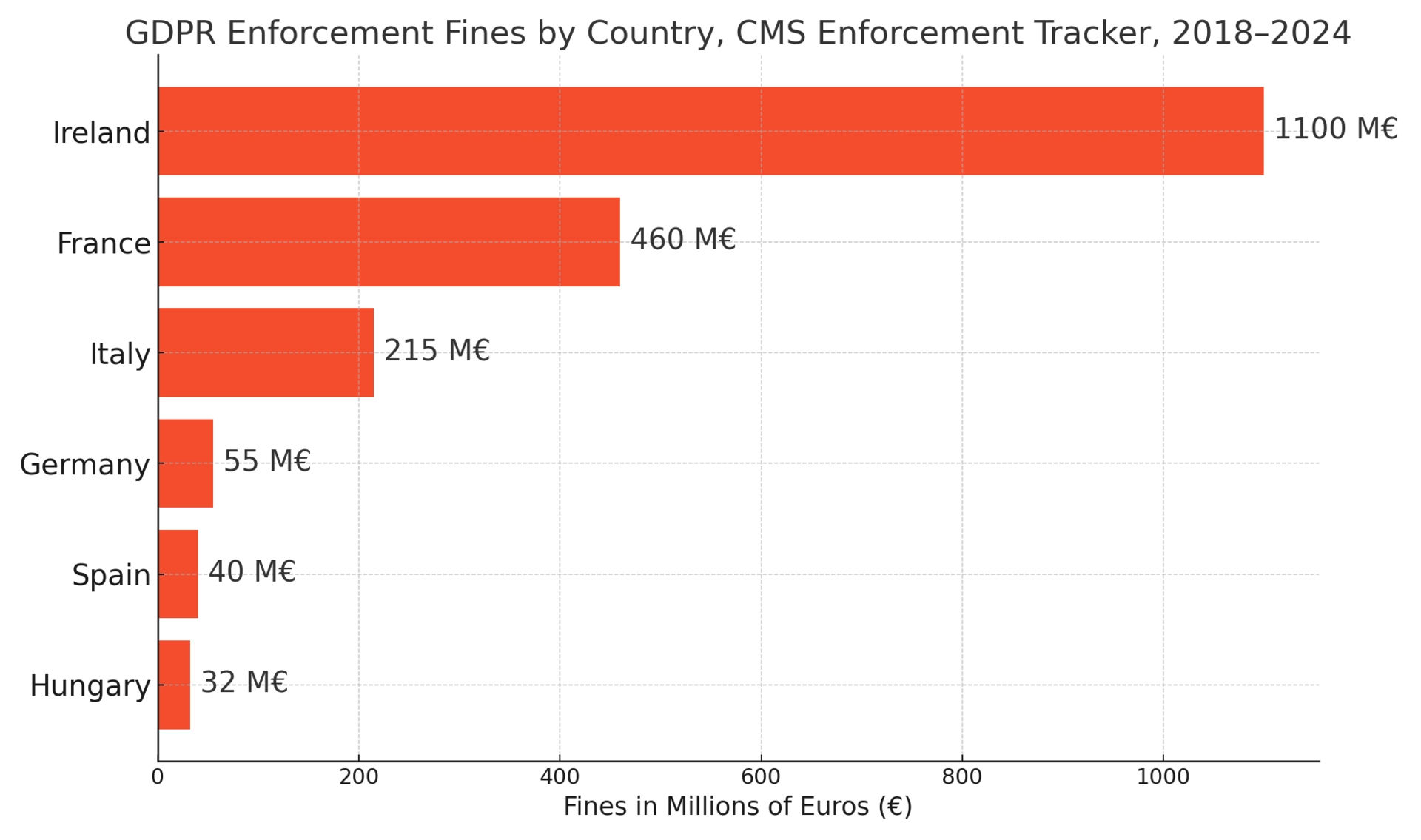
2. 🇺🇸 United States: Data for Sale
In the U.S., data privacy isn’t a right—it’s a revenue stream.
There’s no national privacy law. Instead, the California Consumer Privacy Act (CCPA) leads a patchwork of state-level rules. Meanwhile, businesses quietly gather and sell personal data with minimal oversight.
✅ California residents can opt out of data sales and request their information be deleted.
🟪 Virginia and Colorado are following suit—but enforcement is early-stage.
🚫 Many other states? No significant protections at all.
One to watch: An average smartphone app in the U.S. shares your data with 6+ third parties—every single day.
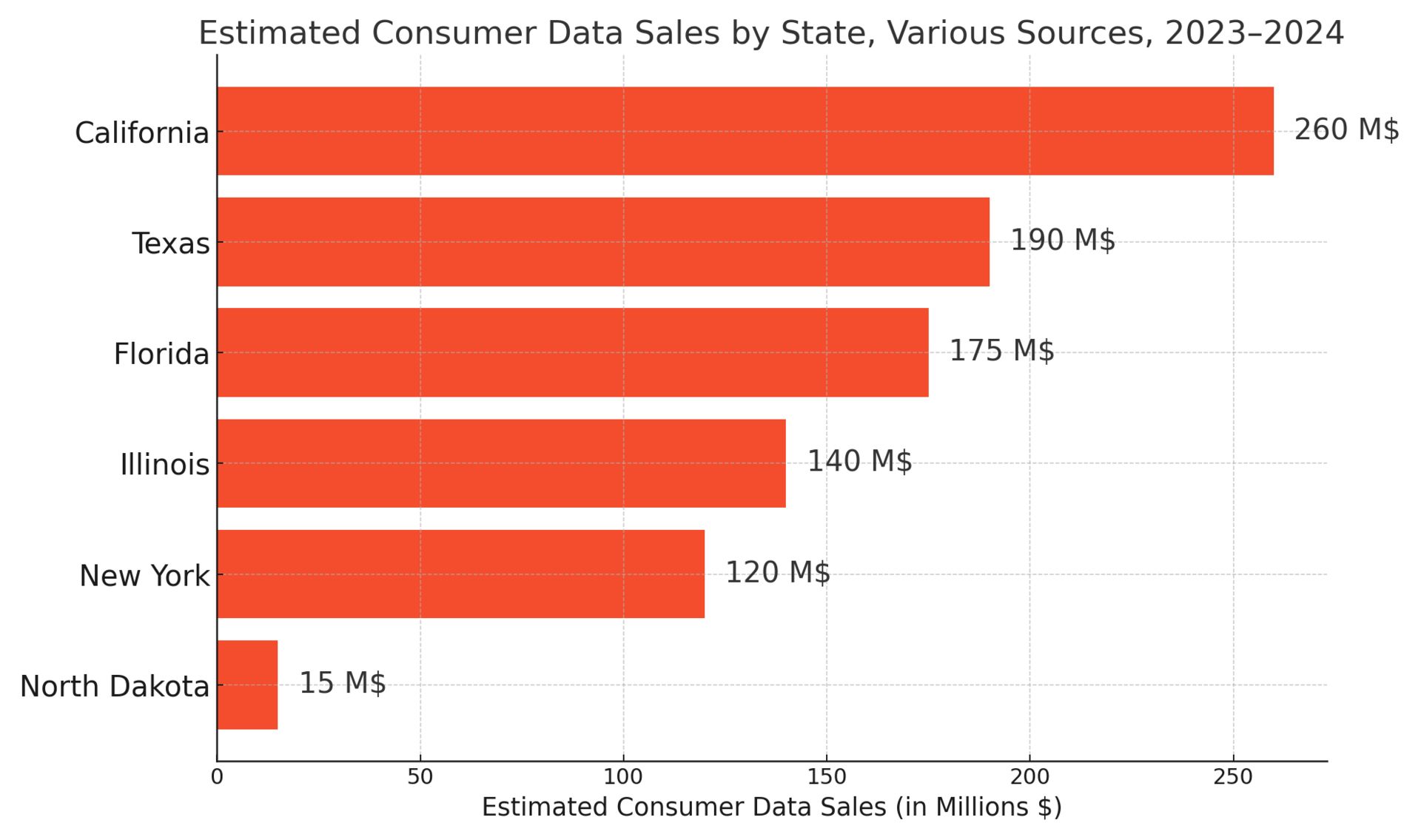
3. 🇨🇳 China: Privacy with an Asterisk
China’s digital laws protect your data—unless the government wants it.
The Personal Information Protection Law (PIPL) gives consumers some control over corporate data use, but the state has few restrictions. Surveillance is deeply integrated into daily life—from street cameras to health QR codes.
🏢 Tech giants like Alibaba must now justify international data transfers.
👮 The government, however, maintains full access when it sees fit.
Little-known twist: Chinese companies must get state approval before sending any user data abroad—making China one of the most tightly controlled digital ecosystems in the world.
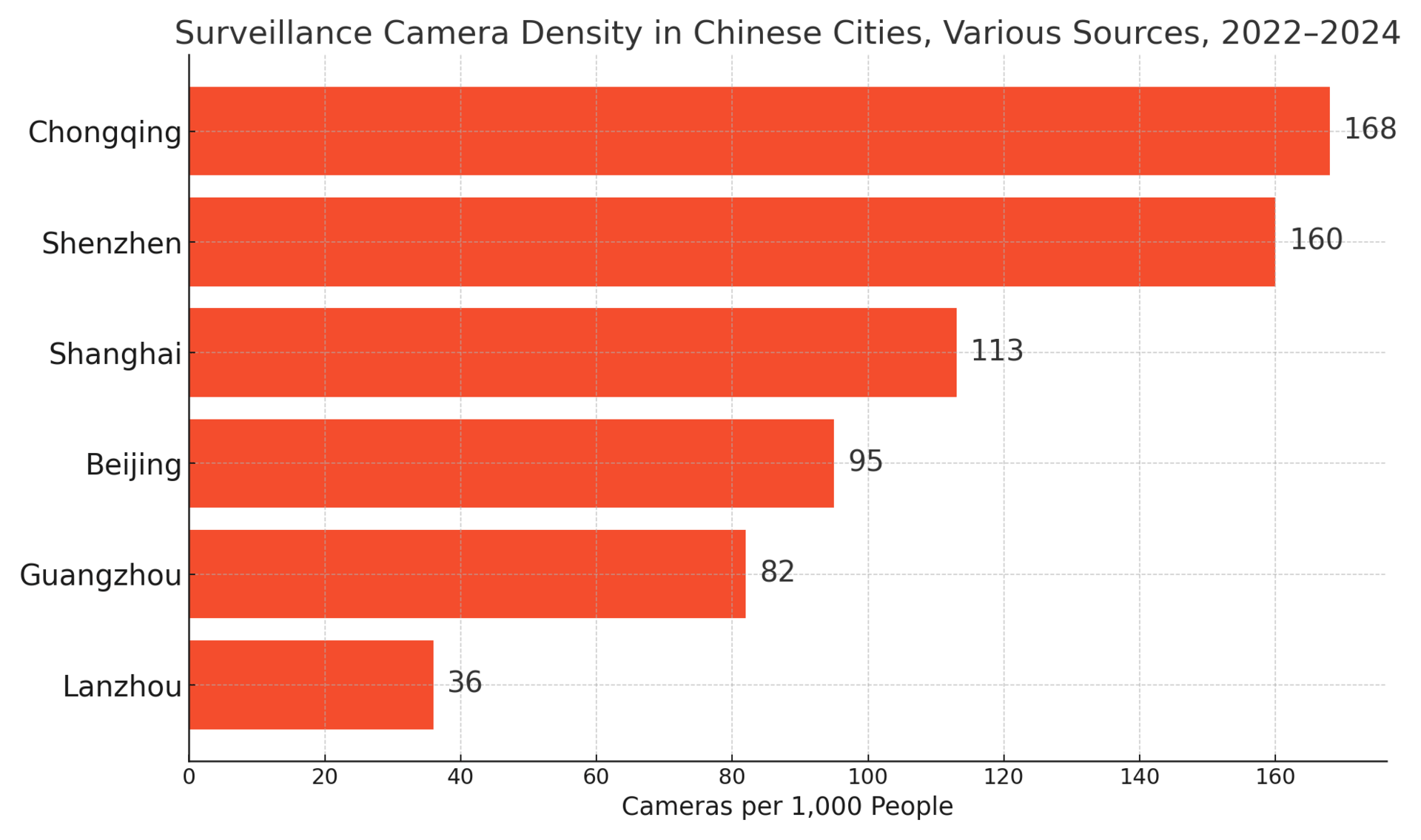
🧠 Smarter in 5 Minutes a Day
Join 450,000+ professionals reading Techpresso — the daily AI & tech newsletter trusted by folks at OpenAI, Meta, and Google. It’s fast, insightful, and actually useful.
Stay sharp. Stay ahead.
4. 🌎 Latin America: Progress Meets Patchiness
Privacy laws are on the books—but not always in practice.
🇧🇷 Brazil’s LGPD mirrors Europe’s GDPR in many ways. It gives citizens the right to control their data and request deletion. But enforcement has been slow, and awareness remains low.
🇦🇷 Argentina has long-standing protections, but digital gaps persist.
🇲🇽 Mexico guarantees privacy constitutionally—but enforcement is hit or miss.
Why it matters: Brazil’s data agency can fine companies up to 2% of their revenue, yet only a handful of fines have ever been issued.
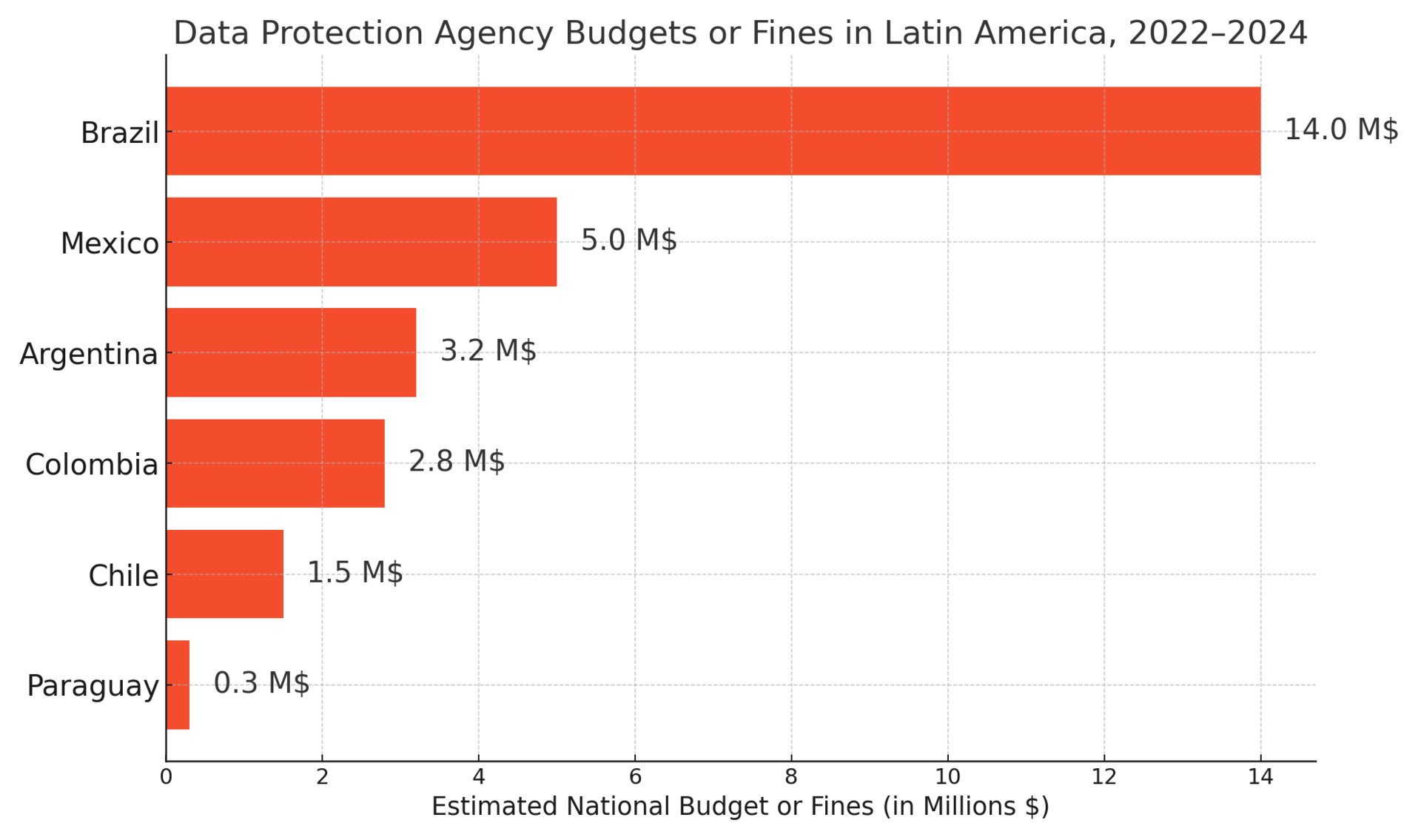
5. 🇯🇵🇮🇳🇰🇷 Asia-Pacific: A Region Divided
Asia is booming digitally, but privacy rules are all over the map.
🇯🇵 Japan was early to adopt privacy laws, but updates have lagged.
🇰🇷 South Korea is strict—Facebook was fined millions for data mishandling.
🇮🇳 India just passed a long-awaited digital law that some say gives too much control to the state.
Meanwhile, fast-growing countries like Indonesia and Vietnam are building frameworks on the fly—often with more focus on business than on user rights.
Eye-opener: During the pandemic, Indonesia’s COVID tracking app exposed the data of over a million users—yet there was no public penalty or accountability.
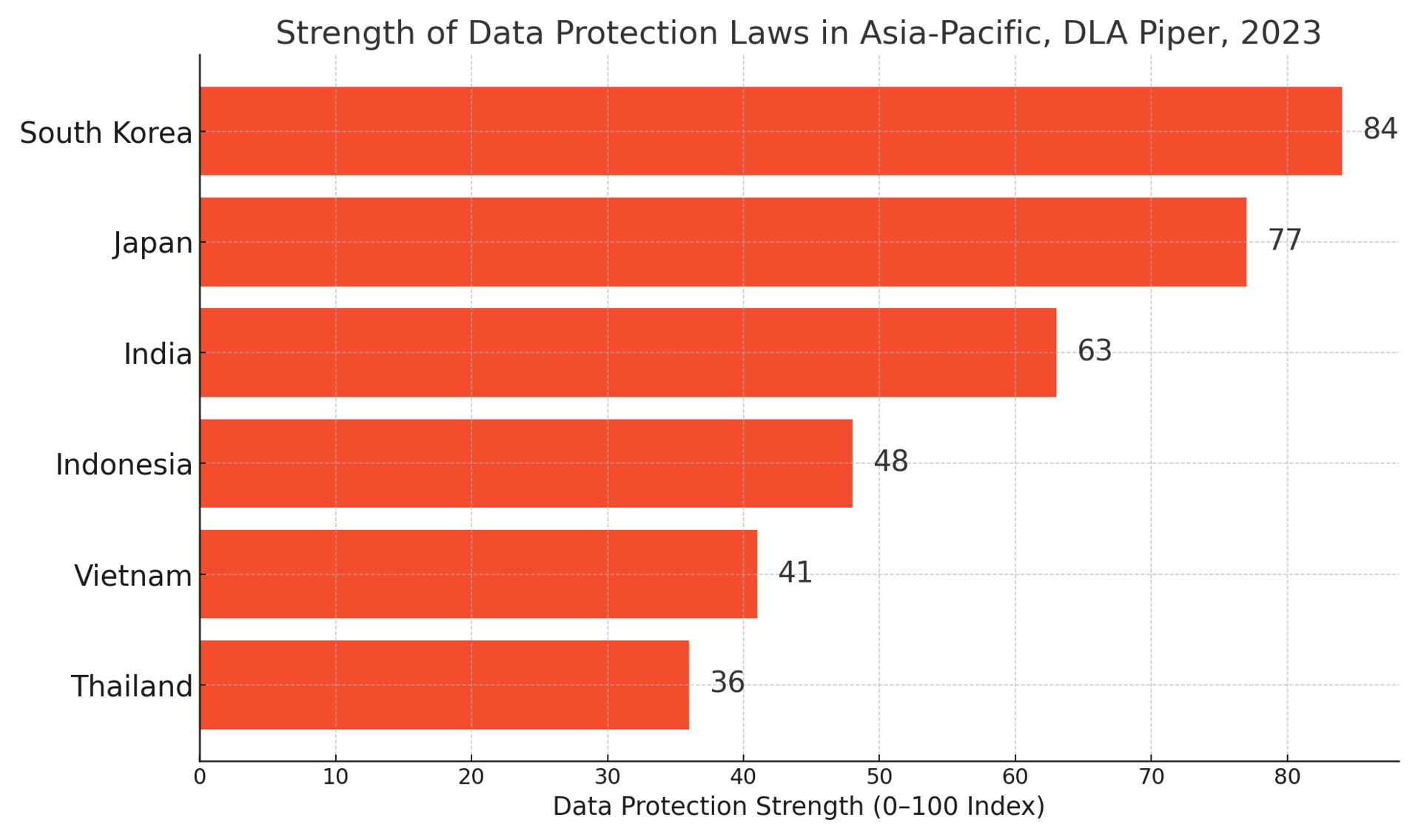
6. 🌍 Africa & Southeast Asia: Rapid Growth, Few Guardrails
In many places, digitization is outpacing regulation.
📱 In Nigeria and Kenya, mobile phones serve as banks, ID cards, and portals to the internet. But legal protections are sparse, and enforcement is weaker still.
🏛️ Vietnam now requires that tech companies store data on local servers—effectively nationalizing user information.
Surprising stat: Over 40% of African mobile users are on platforms that process their data outside the continent—with no clear rules or recourse.
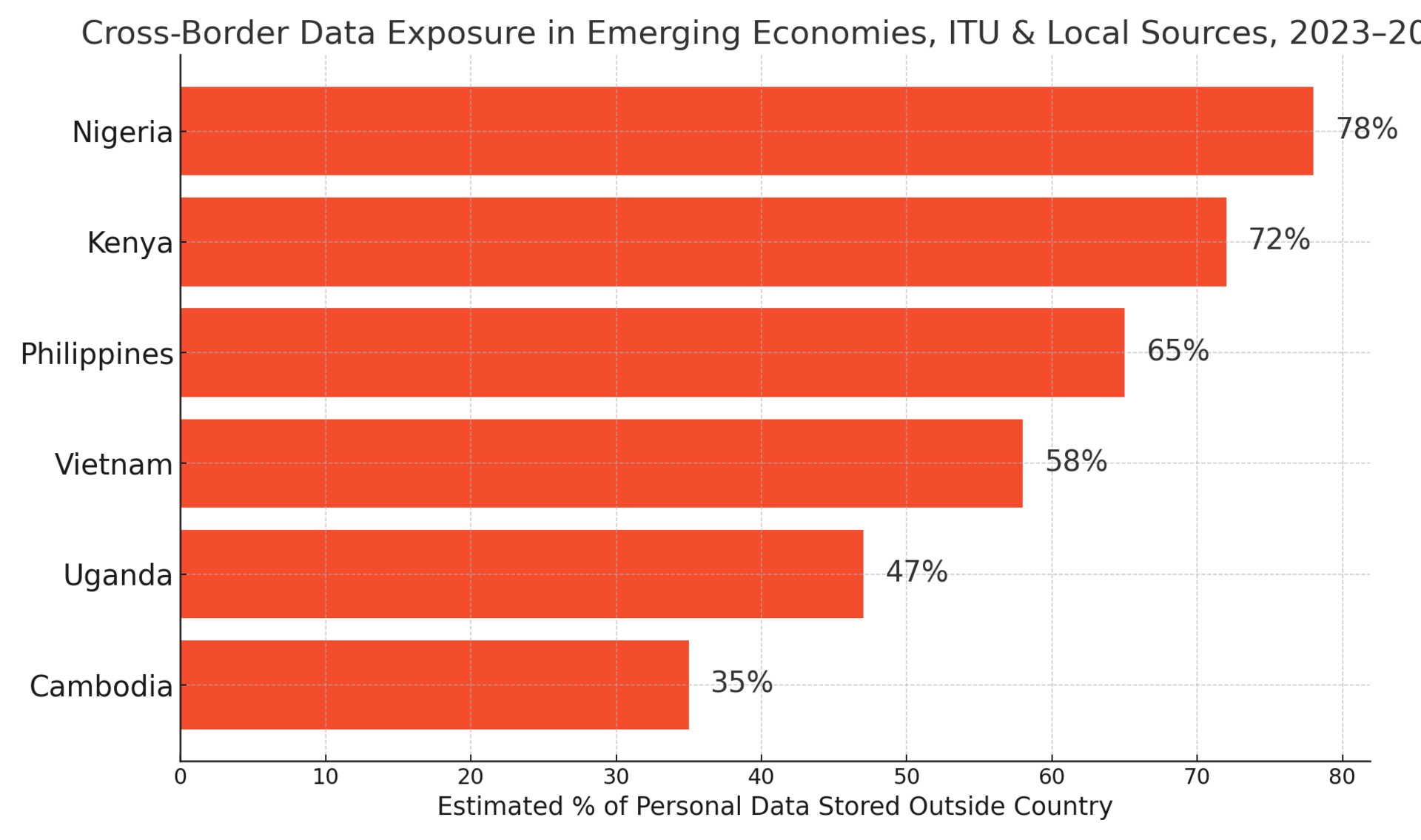
7. 🌐 The New Data Borders: Global Lives, Local Laws
As data crosses borders, countries are drawing new lines.
Governments are increasingly requiring data localization—forcing companies to store data within national boundaries. This trend is growing fast and could change everything from cloud storage to telemedicine.
Countries like India, Russia, China, and even the EU are leading this shift, while global firms scramble to redesign their infrastructure—and their strategies.
🔒 Meanwhile, decentralized technologies like blockchain and privacy-first browsers are challenging the very idea of centralized data control.
Future forecast: By 2026, nearly 7 in 10 countries will have some form of data localization law on the books. It’s the new frontier of digital sovereignty.
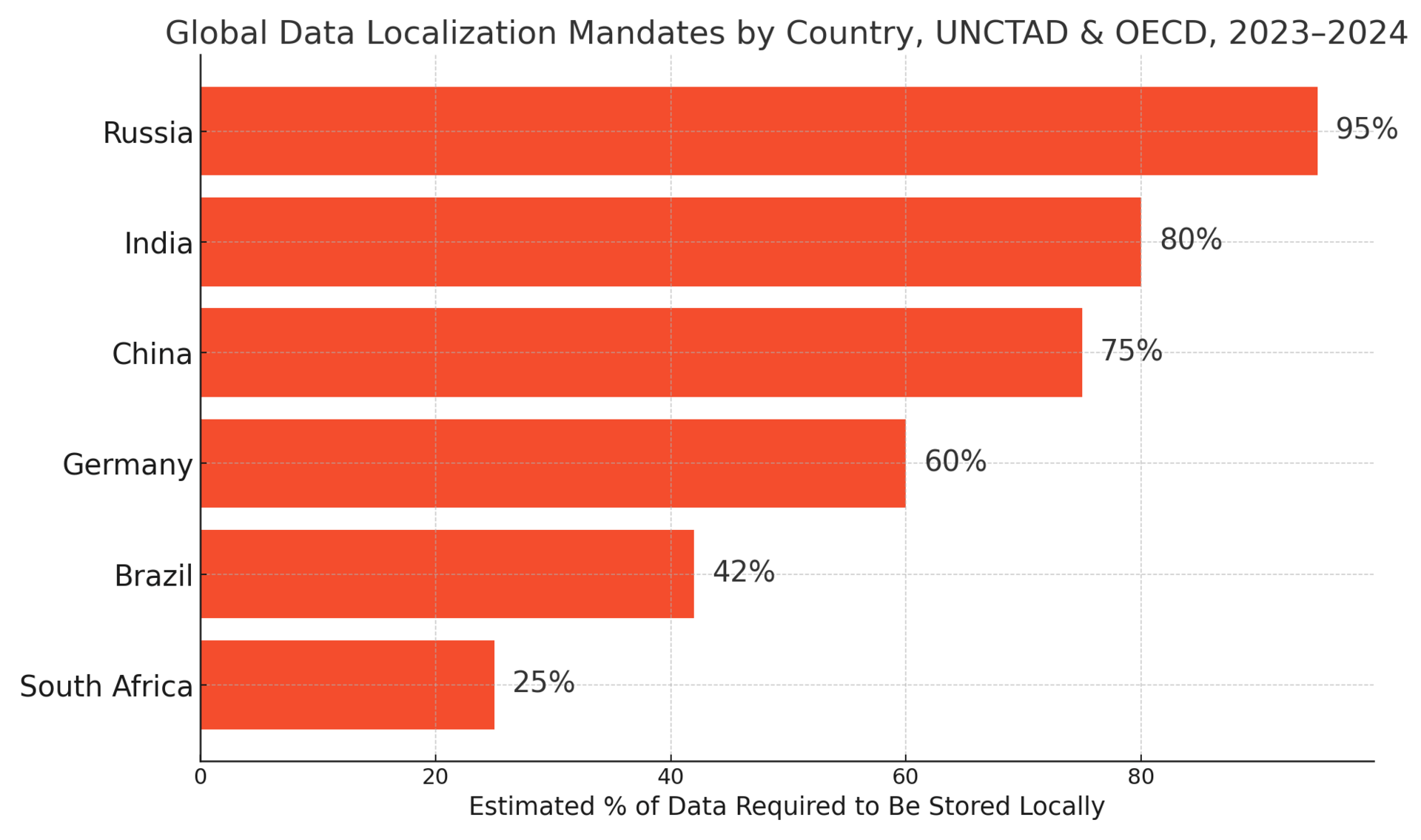
Data privacy isn’t just digital—it’s deeply personal.
Where your data lives can shape where you live, work, invest—even how free you feel. In a world of shifting laws and invisible borders, knowing who controls your information is no longer optional—it’s essential.
Stay informed, stay discerning, and above all—stay in control.
Until next time, keep exploring the fine print of the future.
Warm regards,
Shane Fulmer
Founder, WorldPopulationReview.com
P.S. Want to sponsor this newsletter? Reach 123,000+ global-minded readers — click here!

